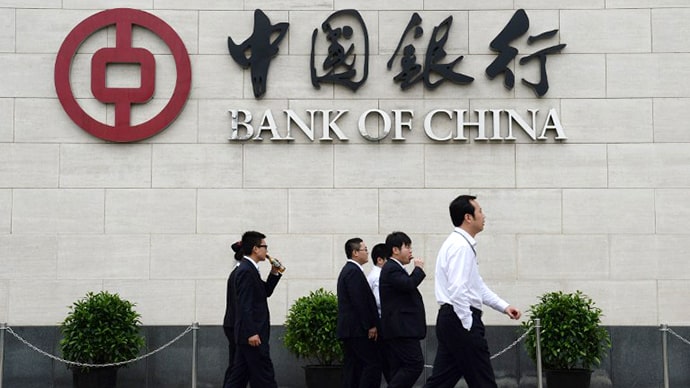Riyadh, Saudi Arabia–Bank of China (BOC), one of China’s four biggest state-owned commercial banks, opened its first branch in Riyadh, which will further expand the use of the yuan in finance and trade.
Experts noted that since the BRICS Summit, members of the bloc have been accelerating the use of local currency settlements in cross-border trade to reduce reliance on the US dollar. The Chinese currency is playing an increasingly important role in facilitating trade and improving efficiency among the BRICS countries, they said.
According to an announcement published by the BOC on Wednesday, the bank opened the Riyadh branch on Tuesday, with BOC President Liu Jin, Chinese Ambassador to Saudi Arabia Chen Weiqing, Governor of the Saudi Central Bank Ayman Al-Sayari and other officials attending the opening ceremony.
Liu said that the establishment of a branch in Saudi Arabia to serve trade and investment exchanges is a solid initiative to promote the high-quality construction of the Belt and Road Initiative with the power of finance.
The bank will continue to improve its global service network and provide high-quality financial services, contributing to the deepening of cooperation between China and Arab countries, between China and the Gulf Cooperation Council, and between China and Saudi Arabia.
Ambassador Chen congratulated the bank on its opening of the branch. He said that the opening is the fruit of the continuous development of friendly relations between China and Saudi Arabia and represents that China highly recognizes Saudi Arabia’s financial regulation, investment environment and the location’s advantages, marking a new level of cooperation between the two countries in the field of finance, which will provide stronger support for bilateral pragmatic cooperation.
Al-Sayari said that the establishment of the branch is another milestone in deepening practical cooperation between the two countries and is of great significance in expanding bilateral economic and trade cooperation. The Saudi side will continue to support and facilitate the development of BOC and other Chinese-funded enterprises in the country.
“As a very important emerging market economy that has just joined the BRICS, the opening of the branch in Saudi Arabia can further promote economic and trade cooperation and facilitate exchanges between Saudi Arabia and China,” Wang Peng, an associate research fellow at the Beijing Academy of Social Sciences, told the Global Times on Wednesday.
As the largest buyer of Saudi Arabia’s crude oil, China imported 87.5 million tons of crude oil from Saudi Arabia in 2022, accounting for 21.7 percent of Saudi Arabia’s total crude oil exports, according to media reports.
In addition to Saudi Arabia, companies in Brazil have also made significant progress in the use of the yuan in trade.
According to Brazilian media outlet The Rio Times, Brazilian pulp company Eldorado Brasil sent its first pulp shipment using the yuan for payment to China. The aim is to open new credit options in China, and the BOC helped with this pilot move.
The shipment was sent on August 25. It had 43 containers.
“The expansion of the use of the Chinese currency reflects very important progress and mutual trust among BRICS countries in the use of local currency settlements to better enhance financial and foreign trade efficiency,” Wang said, adding that the yuan will play an increasingly important role in BRICS cooperation with more application scenarios.
Trade settlements among BRICS countries using the local currency or the yuan can prevent exchange-rate losses, according to the expert.
Moreover, this will improve the efficiency of the operational process of trade, and prevent the US from using the dollar as a weapon to sanction a certain country, Wang added.

